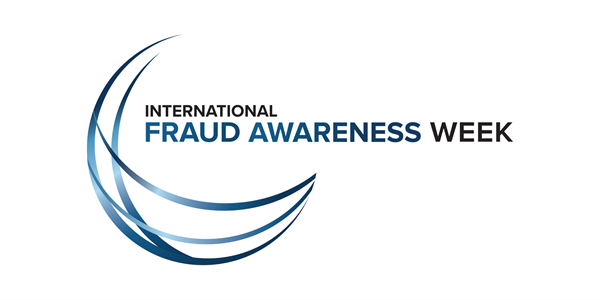Understanding the behaviours of people who commit fraud - International Fraud Awareness Week
As we continue International Fraud Awareness Week 2024, let's focus on understanding the behaviours of those committing fraud.

This week is all about shining a spotlight on fraud including what fraud looks like, how to spot it, and what to do if you suspect something.
We are all on the same team when it comes to preventing fraud in the public sector. From the newest recruits to the Chief Executive, each of us has a crucial role to play in safeguarding public resources.
It’s important for us all to understand that the threat of fraud can come from anywhere:
-
Internal fraud: Often, it is the staff working directly with customers, data, payments, or suppliers who first notice something is amiss.
-
External fraud: benefit claimant, grant recipients, suppliers, contractors and organised crime groups in addition to people who offer, pass, ask for, or receive a bribe.
Whether they are opportunistic or organised, cases show fraudsters using common tried and tested methods. Knowing these common methods can help you anticipate how our programs and projects could be targeted.
We can categorise these methods using fraud personas:
- The Impersonator: They pretend they are another person or entity. They could act as a vendor to hijack a payment.
- The Deceiver: They make others believe something that is not true. The deceiver might misrepresent facts or circumstances to receive a benefit.
-
The Fabricator: Creates false documents or information. They might fabricate documents to receive a grant.
-
The Coercer: Manipulates others to act fraudulently. They may be bribing and coercing someone within an organisation.
-
The Exploiter: Misuses resources or vulnerabilities. The exploiter might target your programs by embezzling money, equipment, vehicles etc.
-
The Concealer: Hides fraudulent activities. They may delete records to hide fraudulent activity.
- The Organised: Uses sophisticated, coordinated methods. This could involve creating false websites and pages to legitimise a scheme.
Watch the video below to understand, why do people commit fraud?
If you would like to arrange Fraud Awareness training for your staff, you can contact the Corporate Fraud Officer: ngalvin@valeofglamorgan.gov.uk
If you suspect fraud, bribery or corruption against the Council, then please report your concerns to Internal Audit:
Or use the Council’s confidential ‘Speak Out’ online option.
Please refer to the Council's Whistleblowing Policy for making protected disclosure.
For further advice on how you can protect yourself against fraud, please take a look at the useful resources on the Action Fraud website.